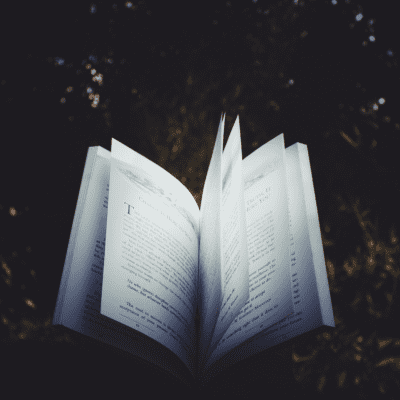It’s an exciting time when you decide to write a novel. The creative juices are flowing and you’re ready to get started. But jumping headfirst into writing isn’t always the best approach.
You don’t need to over plot and overplan everything, but having some idea of where you’re going will definitely help you get going.
Here we’ll go through the steps of how to do this in the most efficient way possible. You’ve come to the right place to plan your novel! Let’s get started.
Why is planning a novel important?
Some writers are more akin to planning than others. People that just like to get started and write with no plot first, do exist, and some do it very well. But it can help to have a plan, as it’s surprising how often you need to go back to the drawing board when you get stuck, have writer’s block, or just aren’t sure which way to go next.
Writing a novel is a lengthy process and plotting it out before you get underway can lead to some surprising results. First, it should help you define some of the core elements of your novel such as the plot, characters, and settings. It should also help direct you to areas that need more time or attention, such as a crucial plot point, character goals that seem weak, or even the chronology of your work that you haven’t quite worked out. It may enable you to cut some ideas you had thought were essential, or even consider others you hadn’t before.
It should be clear it’s important. Writing a novel can be overwhelming at some point, and a plan keeps you grounded and directed. Let’s dive in further.
Tips
Write down your ideas
The first step in planning your novel should be to figure out what you want to write. There are a lot of genres and options out there. If you’re not sure what to write about, consider what you like reading, as this can often help direct your path. If you already know what you want to write about, you might want to jump on to the brainstorming section.
Schedule planning and writing time
Novels don’t just happen, they take time and effort. If you’re time poor like most of us, then it can help to schedule time to write. Give yourself a daily word count goal or a time period to write. You should also get into the right environment for writing; a quiet room in the house, or a library or coffee shop if home is too distracting. J. K. Rowling famously checked herself into an expensive hotel to finish her final Harry Potter book. We can’t all do that, but there might be some similar, more affordable options.
Brainstorming
Brainstorming is a very effective and creative process, so don’t be afraid to let it happen. In fact, it can lead to the inspiration for many of your ideas. Get creative and let yourself explore possibilities, noting down options for characters, plots, settings, and topics. Your ideas might run away, but you can always rein them in later, or use them in something else.
Read & research
Reading is one of the best ways for readers to sharpen their writing tools. Learn from the best by reading voraciously in your genre of choice. We learn by osmosis and those patterns of word use, and the plot and character arcs will infuse into our writing as well.
Set up your essentials (genre, plot, characters, goals, setting, etc)
Once you’ve done the initial work above, it’s time to start making some notes. It doesn’t matter if these are basic, at first. You might begin by deciding on the genre and themes you want present in your work. Another good first step is to name your characters and list any aspects or traits they might display. To this you could add some of their goals or motivations you might highlight in the story (the plot). You might then add some details about the setting. What location will the story take place? What time of year will it be? How can you add weather and other elements to the story? What are the key plot points?
Often these essential elements provide the framework for your novel. And if you need more help, consider our blog Advice for first time writers and Writing a novel: 5 things you must know.
Methods
Once you’ve fleshed out the points above, you’re ready to get into the nuts and bolts of writing. But how should you approach this, and what is the best method? One of the following styles may appeal to you, so let’s outline a few different approaches. Remember though, that not all sizes fit all and you need to work out what approach best suits you.
A-to-z method
This is a straightforward approach that involves starting at the beginning and going through each plot point sequentially, and logically, to the end. This works well for those that might know exactly what kind of story arc they want, how their character’s goals and motivations will merge, and exactly what comes where in the story.
This doesn’t work for those who might do A first, jump to L, then Z, return to B, and so on. Those writers may want to consider another method below.
Snowflake method
The best way to understand this method is to think of a snowflake, and develop your story around it (the centre), then follow the lines that spiral and lead out in all directions, adding more detail as you go.
Author Randy Ingermanson created the snowflake method using the idea of a basic story summary and adding elements from there. To write using this method, you may start with a central idea that you describe with a one-sentence summary. From there you build that into a paragraph, adding character descriptions. And you continue to build, always moving outwards, until you might have a multi-page synopsis to help you plan out your novel.
Free-writing method
The free-writing method is all about spilling your ideas out in whatever direction or order you like. You write and thoughts and ideas just come to you. Later you can organise them better. It is probably better to develop these ideas under headings like characters, settings, and plot to make it easier to sort through them afterwards.
Conclusion
Of course, there are lots of other ways you can approach writing your novel. The key is to find something that works for you, that keeps you directed towards producing the best story arc and presentation of your ideas, and that you can keep feeling motivated to work on.
As with all the writing processes, we recommend you consider using an editor when you’ve got your work as far as you can. You will be amazed by just how many insights an editor can give you, how they can finetune and correct any syntax or formatting issues present, and help with the expression of ideas and story arc. See our fiction editing services to give you some ideas about how we can help you.



















